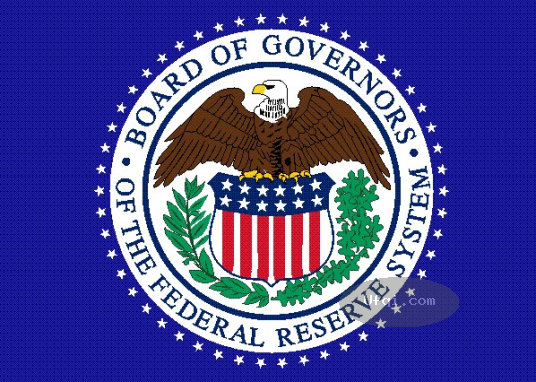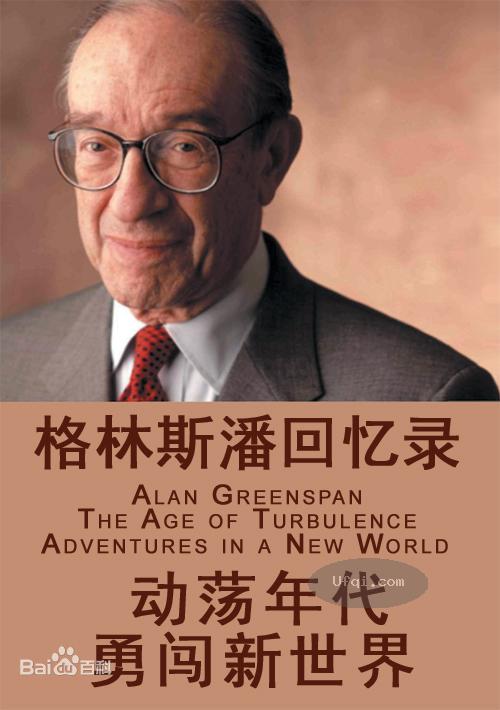


2023-05-03 , 8661 , 104 , 160
美国联邦储备委员会主席艾伦格林斯潘回忆录——动荡年代:勇闯新世界-the age of turbulence-25
从1914年美联储建立以来,无可辩驳的事实显示了银行家们操纵着美国金融命脉、工商业命脉和政治命脉,过去如此,而且一直持续到二十一世纪初。
而这些华尔街的银行家都与伦敦城的罗斯柴尔德家族保持着密切联系。
银行家信托公司(Bankers Trust)的总裁本杰明·斯特朗被选为第一任美联储纽约银行董事会主席。
“在斯特朗的控制下,联储系统与英格兰银行和法兰西银行形成了互锁(Interlocking)关系。
美联储
本杰明·斯特朗作为纽约美联储银行董事于1928年突然死亡,当时国会正在调查美联储董事和欧洲中央银行巨头们的秘密会议,而这些秘密会议导致了1929年经济大退。”
实际上美联储就是一个由私人全权控制的银行体系。
----
Reportedly this infuriated Reagan, who was watching. He couldn't believe Ford would discuss their private negotiation on national TV. But by then I think both men were concluding that to redefine the vice president's role was too important and complex a task to be accomplished on the fly.
Henry in full shuttle-diplomacy mode, was hoping to continue the discussions Thursday but Reagan and Ford both knew that prolonging the uncertainty would hurt Reagan's image. So Ford made his decision.
He went down to Reagan's suite around ten o'clock and told the governor he could
help the ticket more by campaigning as an ex-president on Reagan's behalf than as his running mate. "He was a gentleman/' Reagan said afterward. "I feel we're friends now." He quickly selected George H. W. Bush as his vice presidential candidate and made the announcement that very night.
I didn't expect a role in the new administration and was not sure I wanted one. Coming into the White House, Reagan had more talented and experienced people than places to put them. That was either a problem or an opportunity depending on what you did about it. Anderson, who'd been named assistant to the president for domestic policy development, likes to joke that he went to Reagan and Meese, who headed the transition, and said, "We've got these incredible people, but if we don't use 'em pretty soon, they'll attack us." Instead of dissolving the team that had helped him win, Reagan instituted an advisory group called the Economic Policy Board.
George Shultz chaired it, and it included Milton Friedman, Arthur Burns, Bill Simon, me, and several other prominent economists.
One of the first cabinet-level officers to be appointed was David Stockman,
the director of the budget. Reagan had campaigned on lowering taxes,
building up the military, and cutting down the size of government. The strategy before the inauguration was to give Stockman a head start on the budget, so tough cuts could be presented to incoming cabinet members as a fait accompli. Stockman was a brilliant, hungry thirty-four-year-old congressman from rural Michigan who relished being the point man for what
91
came to be called the Reagan Revolution. In speeches Reagan had compared
downsizing the government to applying fatherly discipline:
"You know, we can lecture our children about extravagance until we run out of
breath. Or we can cure their extravagance by simply reducing their allowance."
In Stockman's version this philosophy had a fiercer name: it was called "starving the beast."



I worked closely with Stockman during the transition as he fashioned a budget that was tough as nails. And I was there the day shortly before the inauguration when he presented it to Reagan. The president said, "Just tell me, David. Do we treat everyone the same? You have to cut everybody equally nastily." Stockman assured him he had, and Reagan gave his okay.
The Economic Policy Board found itself called into action more quickly than anyone expected. The cornerstone of the Reagan tax cuts was a bill that had been proposed by Congressman Jack Kemp and Senator William Roth. It called for a dramatic three-year, 30 percent rollback of taxes on both businesses and individuals, and was designed to jolt the economy out of its slump, which was now entering its second year. I believed that if spending was restrained as much as Reagan proposed, and as long as the Federal Reserve continued to enforce strict control of the money supply,
the plan was credible, though it would be a hard sell. That was the consensus
of the rest of the economic board as well.
But Stockman and Don Regan, the incoming treasury secretary, were having doubts. They were leery of the growing federal deficit, already more than $50 billion a year, and they began quietly telling the president he ought to hold off on any tax cuts. Instead, they wanted him to try getting Congress to cut spending first, then see whether the resulting savings would allow for tax reductions.
Whenever this talk of postponement would get intense, George Shultz would summon the economics advisory board to Washington. This happened five or six times during Reagan's first year. We'd meet in the Roosevelt Room from 9:00 a.m. to 11:00 a.m. and compare our assessments of the economic outlook. Promptly at 11:00, the door would open, and in would come Reagan. Our group reported directly to him. And we'd tell him,
"Under no circumstances should you delay the tax cut." He'd smile and
92
joke; Shultz and Friedman and others were old friends of his. Regan and Stockman, who were permitted to attend the meetings but were not allowed to take seats at the conference table or to vote, would sit along the wall and smolder. Presently the session would end and Reagan would leave,
fortified in his resolve to press for his tax cuts. Ultimately, of course, Congress
approved a version of his economic plan. But since Congress shied away from the necessary restraints on spending, the deficit remained a huge and growing problem.
I played a small role in another presidential decision that first year: not to meddle with the Fed. Reagan was being urged to do so by many people in both parties, including some of his top aides. With double-digit interest rates now entering their third year, people wanted the Fed to expand money supply growth. Not that Reagan could command the chairman of the Fed to do this. But, the theory went, if he were to criticize the Fed publicly, Volcker might feel obliged to ease up.
Whenever the question arose, I would tell the president,
"Don't pressure the Fed."
For one thing, Volcker's policy seemed right—inflation did seem to be slowly coming under control. For another thing, open disagreement between the White House and the Fed could only shake investors' confidence, slowing the recovery.
Volcker didn't make things easy for the new president. The two men had never met, and a few weeks after taking office, Reagan wanted to get acquainted. In order to avoid the appearance of summoning the Fed chairman to the White House, he asked if he could come see Volcker at the Fed—only to have Volcker send back word that such a visit would be "inappropriate."



UfqiLong
I was perplexed: I did not see how a visit by the president could compromise the Fed's independence.
Nevertheless, Reagan persisted, and finally Volcker allowed that he would be willing to meet at the Treasury Department. The president's opening line at their lunch in Don Regan's office became part of the Reagan legend. He said mildly to Volcker, "I'm curious. People are asking why we need a Fed at all." I am told Volcker's jaw dropped; he had to regroup before coming back with a persuasive defense of the institution. This evidently satisfied Reagan, who went back to being his amiable self. He had
93
communicated that the Federal Reserve Act was subject to change.
The two men cooperated quietly from then on. Reagan gave Volcker the political cover he needed; no matter how much people complained, the president
made it his practice never to criticize the Fed. And though Volcker was a Democrat, when his term ended in 1983, Reagan reappointed him.
In late 1981, Reagan asked me to take the lead in dealing with a colossal headache that had been building for years: Social Security was running out of money.
During the Nixon administration, when the program had seemed flush with reserves, Congress had taken the fateful step of indexing benefits to inflation. As inflation soared through the 1970s, so did the costof-living increases in people's Social Security checks. The system was in such financial straits that an added $200 billion was going to be needed as early as 1983 to keep the program afloat. The long-term prospects looked even worse.
Reagan had shied away from talking in any detail about Social Security during his campaign—when the question came up, he'd pledged simply to preserve the system. And no wonder. Social Security is truly the third rail of American politics. There was nothing more explosive than Social Security reform: everybody knew that no matter how you dressed it up, any solution was in the end going to involve either raising taxes or cutting benefits for a huge and powerful bloc of voters, or both.
Yet the problem was serious, and leaders in both parties understood that something needed to be done—either that, or face the likelihood of not being able to mail checks to thirty-six million senior citizens and disabled Americans. We were getting down to the wire. Reagan's opening gambit, in his first budget, was to propose a $2.3 billion reduction in Social Security outlays. That raised such a storm of protest that he was forced to back down. Three months later he came back harder, with a reform proposal that would cut $46 billion in benefits over five years. But it was clear that a bipartisan compromise was the only hope. Thus the Greenspan Commission was born.
94
(未完待续, To be contd)



🔗 连载目录
🤖 智能推荐









